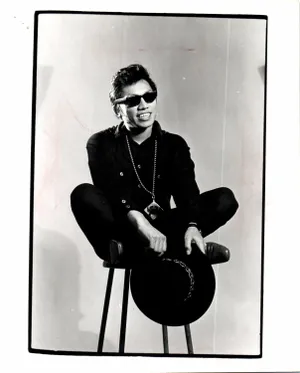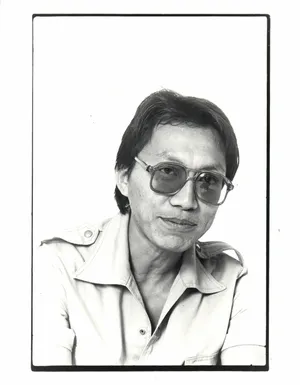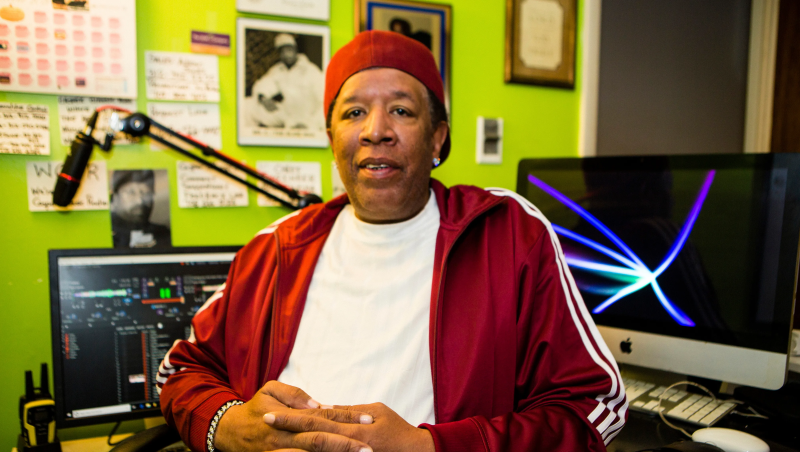Sixto Rodriguez, musician subject of 'Searching for Sugar Man,' dies at 81

Singer-songwriter Sixto Rodriguez, who was catapulted from Detroit obscurity to global acclaim by the Oscar-winning documentary “Searching for Sugar Man,” has died at 81.
Rodriguez passed away Tuesday evening, his daughter told the Detroit Free Press on Wednesday morning.
The musician had been frail and in declining health, associates said, though he was on hand in July for an 81st birthday celebration at Cadieux Cafe on Detroit's east side, which included tributes from members of the Romantics, Sponge and other hometown acts.
Detroit musician Matthew Smith said Rodriguez regained his ability to sing and play guitar in 2019 following a stroke, though several gigs planned for 2020 were nixed amid the pandemic lockdown.
Rodriguez was a low-key fixture of Detroit’s music scene through the decades, a quirky but compelling figure often spotted with his guitar slung over his shoulder. Onstage, he cultivated a mysterious presence, donning sunglasses and often performing with his back to the audience.
“His point of view was always: 'Don’t watch me — listen to what I’m saying,'” said Mike Theodore, who coproduced Rodriguez’s 1970 debut album.
The singer-songwriter sprung to wider notice with the 2012 film, which chronicled the fixation of South African fans enchanted by Rodriguez’s music while that country was walled off from the world during apartheid. “Searching for Sugar Man,” directed by Swedish filmmaker Malik Bendjelloul, went on to win the Academy Award for best documentary in 2013.

That spring, not far from his longtime Woodbridge home, Rodriguez played a sold-out Masonic Temple Theatre — a triumphant Detroit performance on the heels of the film’s success.
“I just want to be treated like an ordinary legend,” he deadpanned onstage that night.
It came amid a high-profile round of attention that included network TV appearances and an international tour that saw him netting up to $150,000 per gig — “for a guy who couldn’t rub two nickels together all those years in Detroit,” as his advisor Joel Martin recalled Wednesday.
"Absolutely it's a transformation," Rodriguez told the Free Press in 2013 about his refueled career. "I've been chasing music since I was 16. I'm a solid 70 now, so that this occurred at all is pretty crazy. That's quite a twist of luck there, a change of fortune."

Rodriguez’s main songwriting output had come with a burst of creative energy in the late ‘60s and early ‘70s, when he penned the music that would make up the albums “Cold Fact” (1970) and “Coming from Reality” (1971). The songs were often yearning and melodic, their lyrics streetwise and Dylanesque, but neither album found much commercial success at the time.
They were the only studio albums issued by Rodriguez during his long music-making career. A fall 2012 concert at Pontiac's Crofoot club was recorded for a potential release, but it never saw the light of day.
Still, those were the two records that captivated Cape Town music fans Stephen Segerman and Craig Strydom during the ‘80s, and the South Africans’ quest to learn more about the cryptic artist — trying to confirm whether he was even still alive — became the backbone of the “Sugar Man” film.
Following his two albums, Rodriguez turned to odd jobs around Detroit, often popping into the public library to browse music trade magazines and artist touring schedules as rock grew into a multibillion-dollar industry. He remained staunchly progressive, making unsuccessful runs for Detroit City Council and the mayor’s seat, quick to speak out against poverty and police brutality, saying: “We’re caught here in Detroit between the cops and the crooks.”

"In the '60s and '70s I thought there was going to be a revolution," he said in 2013. "Now I don't think that. Now I think (the system) is going to cave in on itself. The corruption, the greed — those are the things that have hurt the citizens, especially here in Detroit."
Around town, Rodriguez was long an enigma even among musicians embedded in the scene. Smith (Volebeats, Outrageous Cherry) discovered his music in the '90s, managing to land a copy of "Coming from Reality" in a record-store dollar bin.
"It was as good as anything Leonard Cohen, Van Morrison or Bob Dylan did," Smith said Wednesday.
It wasn't easy to penetrate Rodriguez's personal world — "he was a hard guy to get to know," Smith recalled — but the two became friendly, and Smith was enlisted as part of the band that toured with the musician following "Sugar Man," including dates at the Coachella festival, New York's Beacon Theatre and European venues.
The mythology captured in the documentary often overshadowed Rodriguez's musical depth. In concert, he performed covers of songs by Frank Sinatra and Nina Simone, his guitar work laced with unique chord figures. Working with him up close, Smith was drawn to Rodriguez's "advanced flamenco playing combined with the style of (bluesman) Jimmy Reed."
"The guy was an incredible rhythm guitar player, and vocally he was on the level of a Tim Buckley," said Smith. "He had such a signature voice."
Playing Pine Knob Music Theatre last summer as Rodriguez watched on, Johannesburg-born Dave Matthews paid tribute to the Detroit musician, whose music had been a staple in South Africa, Australia and other limited spots while remaining largely unknown elsewhere.
"He was as important to me as Bob Dylan, as Cat Stevens, as Marvin Gaye," Matthews said at Pine Knob before performing a cover of Rodriguez's "Sugar Man."
Rodriguez’s debut album was produced by Theodore and guitarist Dennis Coffey, the latter a former member of Motown’s Funk Brothers. Like others in the musician’s orbit at that time, including late Detroit impresario Harry Balk, they thought Rodriguez had the artistic goods to be a breakout star.
They just didn’t realize it would take four decades.
“Rodriguez was an American fairy tale,” Theodore said Wednesday. “He was a mysterious, talented individual who carved an eccentric path through life. He just couldn’t gain traction in this country.
“But his dreams did come true in the end. His life ended up on top.”
Contact Detroit Free Press music writer Brian McCollum: 313-223-4450 or bmccollum@freepress.com.

Disclaimer: The copyright of this article belongs to the original author. Reposting this article is solely for the purpose of information dissemination and does not constitute any investment advice. If there is any infringement, please contact us immediately. We will make corrections or deletions as necessary. Thank you.







